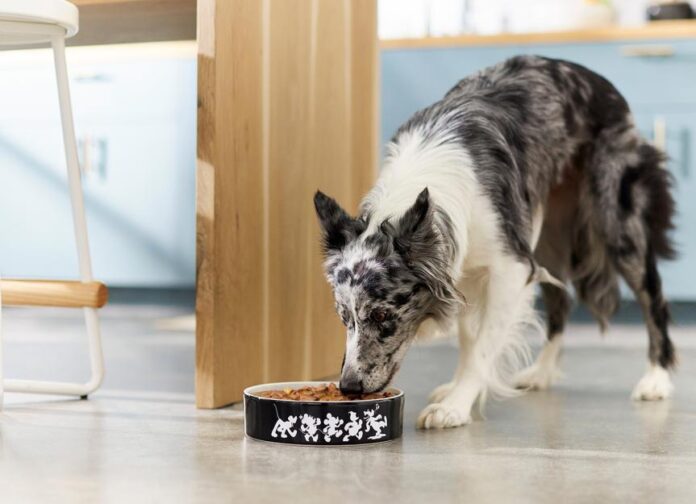Understanding Human-Grade Dog Food: Is It Right for Your Canine Companion?
As pet ownership evolves, many dog owners treat their pets as family members. This sentiment has led to a growing interest in diets that meet similar nutritional standards for humans. Among these options is human-grade dog food, which has captured the attention of pet parents looking for quality nutrition. However, before transitioning your dog to this type of diet, it’s crucial to understand the benefits and potential drawbacks, as well as the significance of consulting with your veterinarian.
Key Takeaways on Human-Grade Dog Food
- Human-grade dog food features ingredients that are safe for human consumption, but may lack complete nutritional balance for dogs.
- Benefits include high palatability, digestibility, and protein content.
- Always consult your veterinarian before changing your dog’s diet.
What Constitutes Human-Grade Dog Food?
Human-grade dog food is composed of ingredients that are deemed safe for humans to eat. While this offers peace of mind regarding ingredient quality, it does not guarantee that the food is nutritionally complete for dogs. Some human-grade diets may require additional supplementation to meet the dietary needs of your pet. Notable brands include JustFoodForDogs, Ollie, The Farmer’s Dog, and Get Real.
Advantages of Human-Grade Dog Food
Switching to a human-grade diet can offer several benefits for your dog, including:
- High in Protein: Supports muscle development and overall health, potentially reducing stool volume.
- Highly Digestible: Less processing means more nutrients remain intact for absorption.
- Palatability: Fresh ingredients enhance flavor, appealing to selective eaters.
- Perceived Safety: Ingredients must meet human safety standards, providing reassurance to pet owners.
- Improved Coat and Skin: Nutrient-rich diets may lead to healthier skin and shinier fur.
- Supports Gut Health: Some studies indicate better gut microbiomes in dogs fed human-grade diets compared to traditional kibble.
Research in this area is ongoing, and due to the relative novelty of human-grade dog food, more data is necessary to fully evaluate long-term benefits.
Disadvantages of Human-Grade Dog Food
Despite the upsides, human-grade dog food also presents several drawbacks:
- Lacks Nutritional Completeness: These diets may not fulfill all essential nutrients and sometimes require supplementation.
- High Cost: Generally more expensive than conventional dog food, impacting monthly expenses.
- Health Considerations: Certain dogs, particularly those with chronic conditions or dietary restrictions, may not be suitable for human-grade diets.
- Chronic health issues (e.g., kidney disease)
- Food allergies or intolerances
- Sensitive digestive systems
Consultation with a veterinarian is essential before making any dietary changes, especially for dogs with specific health conditions.
Choosing the Best Human-Grade Dog Food
While human-grade dog food may not automatically be superior to high-quality traditional diets, considerations when selecting the right one include:
- Prioritize high-quality ingredients, regardless of the food’s classification.
- Opt for foods with an Association of American Feed Control Officials (AAFCO) label to ensure complete and balanced nutrition.
- Consult your veterinarian to ensure the diet meets your dog’s specific health needs.
Examples of reputable human-grade dog food include JustFoodForDogs, The Pets Table, and Happy Howl.
Is Human-Grade Dog Food Suitable for Your Dog?
Many dogs can thrive on human-grade diets as long as they meet AAFCO standards. Veterinarians often recommend these diets for pet parents seeking fresh, nutrient-dense options, especially for picky eaters. Always consult your veterinarian for tailored advice to suit your dog’s health and lifestyle.
Human-Grade Dog Food FAQs
Do vets recommend human-grade dog food?
Yes, veterinarians may recommend human-grade dog food, provided it meets AAFCO standards for complete and balanced nutrition.
Is human-grade dog food better than kibble?
Human-grade dog food is not inherently better than kibble; both options have their respective advantages and disadvantages. The key is to choose food that is AAFCO-approved and fits your dog’s nutritional requirements.
How much does human-grade dog food cost?
Prices for human-grade dog food can vary widely based on brand and product type, but they are typically more expensive than traditional dog foods.
Which dog food brands are human grade?
Popular human-grade dog food brands include Ollie, The Farmer’s Dog, JustFoodForDogs, and Get Real.











